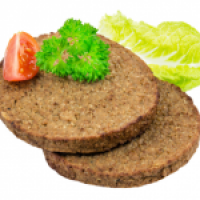Why Are Lectins Bad for You?

You may have heard something about your friends or family going on a “lectin-free” diet and wondered what it was all about. Are lectins really a ‘thing’ that you need to be concerned about when choosing a healthy diet? Aren’t lectins found in otherwise healthy foods like fruits and vegetables? Yes, to all of those questions. Let’s take a look at why these little components of foods can really cause you a lot of grief.
Many plant-based foods, including legumes, grains like wheat and corn, and nightshade vegetables, contain a type of protein called lectins. While they may have some potential health benefits, there is growing evidence that consuming too many lectins can harm your health.
Lectins: Nature’s Mysterious Proteins
Certain proteins have earned a reputation in biology for their multifaceted roles, ranging from cellular recognition to defense mechanisms. Among these enigmatic proteins, lectins are intriguing molecules with diverse functions and implications across various fields, including health, agriculture, and biotechnology. From their discovery to their contemporary significance, exploring the intricacies of lectins unveils a fascinating narrative within the biological landscape.
The Discovery of Lectins
The term “lectin” finds its roots in the Latin word “legere,” meaning “to select” or “choose.” This aptly describes the primary function of lectins – their ability to bind to specific carbohydrates selectively. The earliest documented encounter with lectins dates back to the late 19th century when German chemist Hermann Stillmark discovered ricin, a highly toxic lectin found in castor beans.
However, it was not until the mid-20th century that researchers began to investigate lectins systematically. Notably, the work of Dr. Peter Hermann Hermann Stillmark, who coined the term “lectin” in 1954, laid the groundwork for understanding these proteins’ carbohydrate-binding properties. Since then, scientists have identified lectins across various organisms, from plants and animals to microorganisms.
Structure and Function of Lectins
Lectins exhibit remarkable structural diversity, with various shapes and configurations facilitating their interaction with carbohydrates. Most lectins are proteins, although some can be glycoproteins or even non-protein molecules.
The primary function of lectins revolves around carbohydrate recognition, which plays a crucial role in various biological processes. For instance, lectins serve as cell surface receptors involved in cell-cell adhesion, immune response modulation, and pathogen recognition. Moreover, lectins contribute to processes like cell signaling, glycoprotein trafficking, and embryonic development, highlighting their indispensability in biological systems.
How Do Lectins Cause Harm?
Damage to the Gut
The body can experience various health problems due to the binding of lectins to carbohydrates. One of the most well-known problems associated with lectins is their ability to damage the gut lining. When lectins bind to the cells in the gut, they can cause inflammation and damage to the digestive system. This can lead to various digestive problems, including bloating, gas, and diarrhea. Oftentimes we see this abdominal distention as “fat” and work hard to lose it. This, of course, doesn’t work because it is actually an inflammatory reaction to the lectins. Nutrient Absorption Another potential problem with lectins is their ability to interfere with the absorption of nutrients. When lectins bind to carbohydrates in the digestive system, they can prevent the body from absorbing important vitamins and minerals. This can lead to nutrient deficiencies like iron, calcium, and zinc.
Are Lectins a Source of Autoimmune Disorders?
In addition to these problems, there is also evidence that lectins may contribute to autoimmune disorders. When lectins bind to carbohydrates in the body, they can trigger an immune response that can lead to inflammation and damage to healthy tissues. This can contribute to a variety of autoimmune disorders, including rheumatoid arthritis, lupus, and multiple sclerosis.
What Are Common Sources of Lectins?
Fruits
In short, lectins come from plants that are botanically a fruit. This means it has a seed. So, that includes all of the obvious things we call “fruit” PLUS tomatoes, zucchini, eggplant, peppers, etc. Yikes! That’s a lot of things when you really think about it.
Grains
One of the biggest sources of lectins in the Western diet is grains. While whole grains are often promoted as a healthy food, they are also a major source of lectins. This is particularly true of wheat, which contains a lectin called wheat germ agglutinin (WGA). Studies have shown that WGA can cause significant harm to the gut and may lead to the development of conditions such as leaky gut syndrome.
Legumes
Legumes are another major source of lectins in the diet. Although legumes are commonly advertised as a healthy protein source, they contain high levels of lectins.
This is particularly true of beans containing a lectin called phytohaemagglutinin (PHA). PHA is extremely toxic and can cause severe digestive problems when consumed in large quantities. Overall, there is growing evidence that consuming too many lectins can harm your health. Consuming too many lectins can present potential risks, even though many healthy foods contain them. It is important to be aware of these risks.
What You Can Do
References:
- Vasconcelos, I. M., & Oliveira, J. T. (2004). Antinutritional properties of plant lectins. Toxicon, 44(4), 385-403. Link
- Peumans, W. J., & Van Damme, E. J. M. (1995). Lectins as plant defense proteins. Plant Physiology, 109(2), 347-352. Link
- Gundry, S. (2017). The Plant Paradox: The Hidden Dangers in “Healthy” Foods That Cause Disease and Weight Gain. Harper Wave. Link




